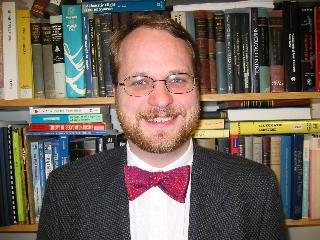Instrumentation: Sensors and Signals
Lecturer: Kent LundbergScience requires data, and gathering good data requires interfacing useful circuitry to useful sensors. This course is an introduction to the science and practice of instrumentation. Measurement of the real world is the basis of science, engineering, manufacturing, and design. Topics covered include surveys of sensors and transducers, the design of interface circuitry, and techniques for data acquisition.
- Introduction to Instrumentation
- Instrumentation overview
- Sensor mechanisms
- Some examples
- Sensor Types and Technologies
- Thermocouples
- Resistance temperature detectors (RTD)
- Thermistors
- Semiconductor sensors
- Op-Amp Interface Circuits
- Simple op-amp circuits
- Multiplier circuits
- Offset and drift
- Gain, CMRR, and PSRR
- Gain-bandwidth product
- Bridge Circuits
- Resistance change
- Wheatstone bridge
- Wire connections
- Example circuits
- Noise Sources and Analysis
- Things that are not noise
- Thermal noise
- Shot noise
- Flicker noise
- Amplifier noise
- Op-amp noise analysis
- Analog Signal Conditioning
- Applications
- Vocabulary
- Transfer functions
- Op-amp circuits
- Block diagrams
- State-variable filters
- Analog-to-Digital Conversion
- Nyquist Sampling Theorem
- Aliasing and Quantization
- Signal-to-noise ratio
- Static parameters
- Dynamic parameters
Custom Courses
Custom courses, tailored specifically to your needs, are available. Inquire within.
Lecturer

Kent H. Lundberg is an educator, consultant, and historian. He is president of Keeling Flight Hardware, Ltd., which provides design, research, and educational consulting services in the fields of aerospace, electronics, and control systems for companies, universities, and government organizations.Since 2008, Dr. Lundberg has been a Visiting Professor at Olin College of Engineering, where he teaches courses in controls, circuit design, and instrumentation. From 2002 to 2005 and in 2011, he was a Lecturer with the Department of Electrical Engineering and Computer Science at the Massachusetts Institute of Technology. His research and teaching interests include the application of classical control theory to problems in analog circuit design, and the development of educational toys (lecture demos, take-home laboratory kits, and tutorial computer applications) for feedback systems and control engineering.
Dr. Lundberg was the Associate Editor for History of IEEE Control Systems Magazine from 2004 to 2011. He attended M.I.T. earning a Bachelor's degree in physics in 1992, and a Ph.D. in electrical engineering in 2002. He owns 43 Tektronix oscilloscopes, and he obsessive-compulsively collects analog synthesizers, technology artifacts, and classic textbooks on radar, nuclear energy, analog computing, and control.
Last updated at 10:11 on Thursday, 10 Jan 2013. by Kent Lundberg